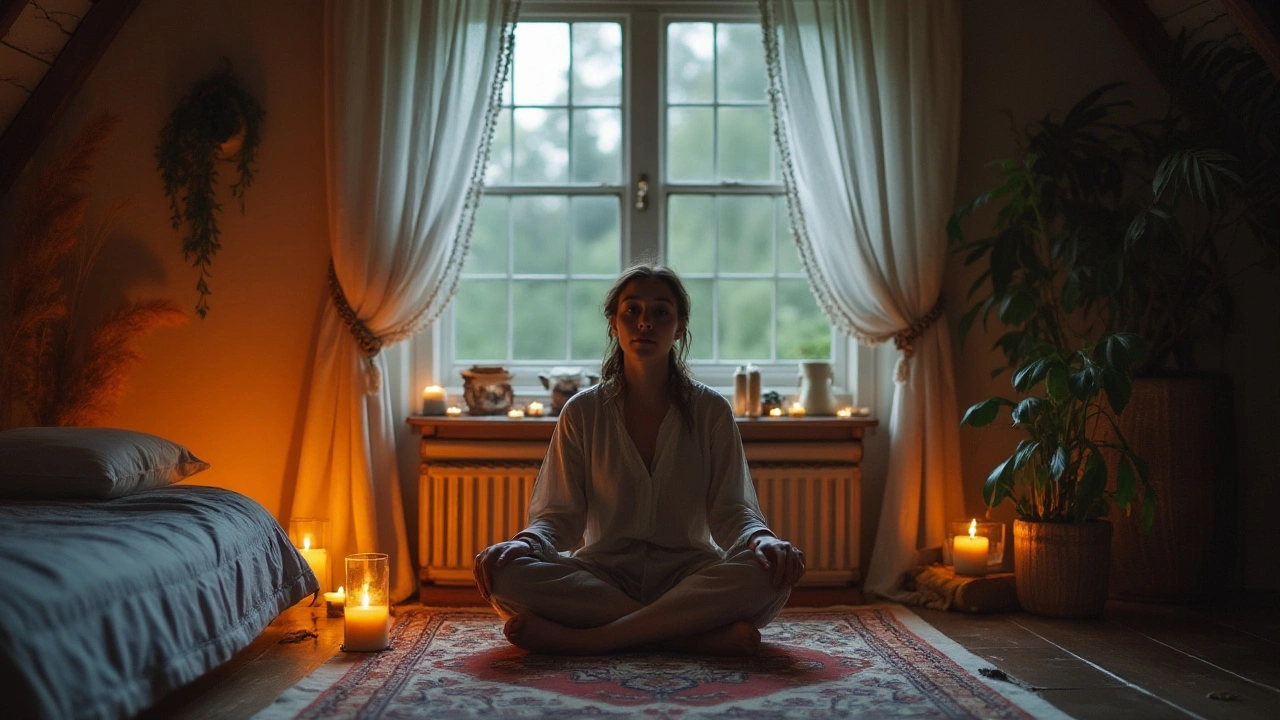Insomnia Relief: Practical Ways to Sleep Better Tonight
Can’t shut off your mind when it’s time to sleep? You’re not alone. Insomnia sneaks in when your brain is wired tight or overwhelmed by stress. But here’s the good news: there are real, simple steps you can take to calm your mind and catch better sleep—without reaching for pills or complicated routines.
Why Stress and Sleep Don’t Get Along
Stress is a major trigger for insomnia. When your brain feels stuck on worry, it holds onto adrenaline, making it tough to relax. If your nightly routine involves scrolling through your phone or thinking about the day’s problems, your body stays alert when it should be winding down.
One way to fight this cycle is with quick relaxation techniques. Try deep breathing: slowly breathe in for 4 counts, hold for 7, and exhale for 8. This 4-7-8 method helps lower your heart rate and ease tension. Another tool is mindfulness meditation, which focuses your attention on the present moment, letting go of racing thoughts.
Healthy Habits to Boost Restful Sleep
Start with your environment. Keep your bedroom cool, dark, and quiet—these small changes help signal to your brain that it’s time to sleep. Avoid bright screens at least an hour before bed, since blue light disrupts melatonin, the hormone that controls sleep cycles.
Also, watch what you eat and drink near bedtime. Caffeine and sugary snacks can keep you wired. Instead, sip on herbal teas like chamomile or try gentle aromatherapy using essential oils such as lavender or peppermint, which many find calming. Remember, consistent sleep times are key—going to bed and waking up at the same hours trains your body’s internal clock.
If your mind is still buzzing, jot down your worries in a journal before bed. Getting thoughts out can unclutter your head and reduce nighttime anxiety.
Facing insomnia isn’t fun, but trying these practical tips can unlock better sleep and refresh your days. Take small steps tonight and notice the difference tomorrow.
6 December 2024
Leighton Browne
Meditation, a practice rooted in mindfulness and relaxation, has shown significant promise in alleviating insomnia and enhancing sleep quality. By creating a tranquil mental environment, regular meditation can ease the worrying thoughts that keep many awake at night. This article explores meditation's role in promoting better sleep, offering practical techniques and noting transformative benefits for those plagued by sleepless nights. Discover how meditation can be an effective tool in your nightly routine, leading to more peaceful and rejuvenating sleep.
Continue Reading...






